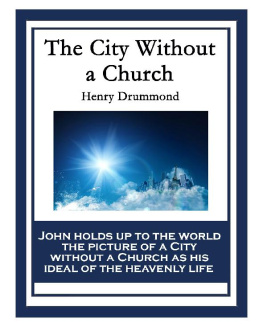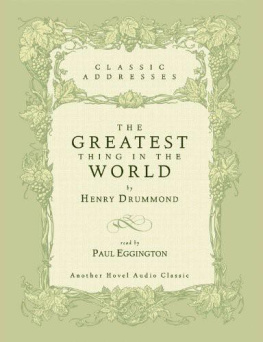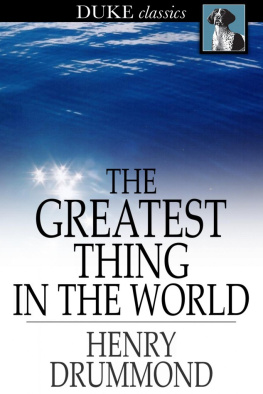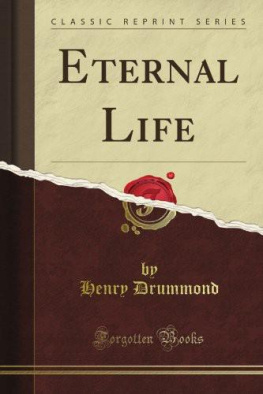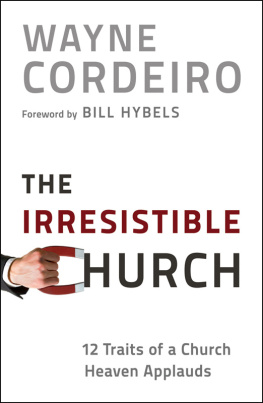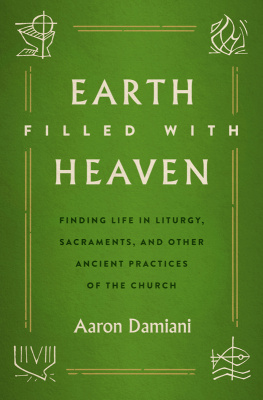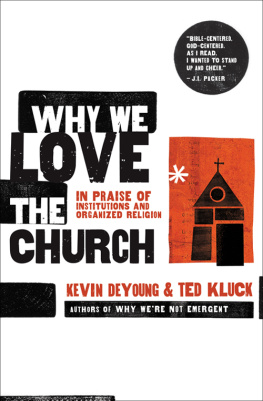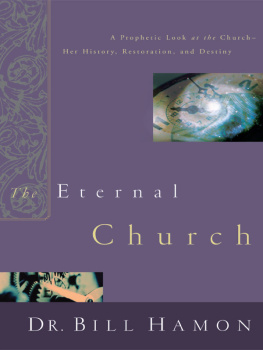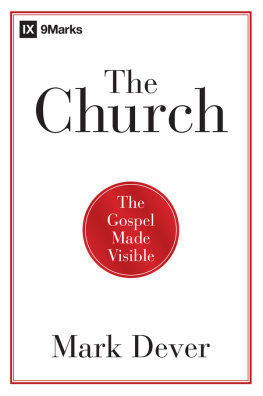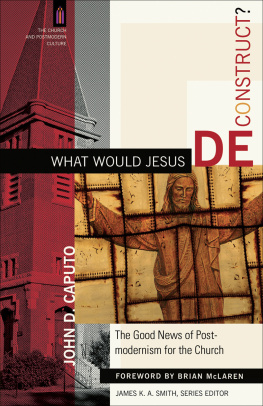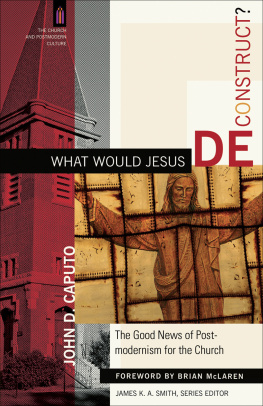Henry Drummond - The City Without a Church
Here you can read online Henry Drummond - The City Without a Church full text of the book (entire story) in english for free. Download pdf and epub, get meaning, cover and reviews about this ebook. year: 2014, publisher: Wilder Publications, Inc., genre: Religion. Description of the work, (preface) as well as reviews are available. Best literature library LitArk.com created for fans of good reading and offers a wide selection of genres:
Romance novel
Science fiction
Adventure
Detective
Science
History
Home and family
Prose
Art
Politics
Computer
Non-fiction
Religion
Business
Children
Humor
Choose a favorite category and find really read worthwhile books. Enjoy immersion in the world of imagination, feel the emotions of the characters or learn something new for yourself, make an fascinating discovery.
- Book:The City Without a Church
- Author:
- Publisher:Wilder Publications, Inc.
- Genre:
- Year:2014
- Rating:5 / 5
- Favourites:Add to favourites
- Your mark:
- 100
- 1
- 2
- 3
- 4
- 5
The City Without a Church: summary, description and annotation
We offer to read an annotation, description, summary or preface (depends on what the author of the book "The City Without a Church" wrote himself). If you haven't found the necessary information about the book — write in the comments, we will try to find it.
The City Without a Church — read online for free the complete book (whole text) full work
Below is the text of the book, divided by pages. System saving the place of the last page read, allows you to conveniently read the book "The City Without a Church" online for free, without having to search again every time where you left off. Put a bookmark, and you can go to the page where you finished reading at any time.
Font size:
Interval:
Bookmark:
Two very startling things arrest us in Johns vision of the future. The first is that the likest thing to Heaven he could think of was a City; the second, that there was no Church in that City.
Almost nothing more revolutionary could be said, even to the modern world, in the name of religion. No Churchthat is the defiance of religion; a Citythat is the antipodes of Heaven. Yet John combines these contradictions in one daring image, and holds up to the world the picture of a City without a Church as his ideal of the heavenly life.
By far the most original thing here is the simple conception of Heaven as a City. The idea of religion without a Church I saw no Temple thereinis anomalous enough; but the association of the blessed life with a Citythe one place in the world from which Heaven seems most far away is something wholly new in religious thought. No other religion which has a Heaven ever had a Heaven like this. The Greek, if he looked forward at all, awaited the Elysian Fields; the Eastern sought Nirvana. All other Heavens have been Gardens, Dreamlandspassivities more or less aimless. Even to the majority among ourselves Heaven is a siesta and not a City. It remained for John to go straight to the other extreme and select the citadel of the worlds fever, the ganglion of its unrest, the heart and focus of its most strenuous toil, as the framework for his ideal of the blessed life.
The Heaven of Christianity is different from all other Heavens, because the religion of Christianity is different from all other religions. Christianity is the religion of Cities. It moves among real things. Its sphere is the street, the market-place, the working-life of the world.
And what interests one for the present in Johns vision is not so much what it reveals of a Heaven beyond, but what it suggests of the nature of the heavenly life in this present world. Find out what a mans Heaven is no matter whether it be a dream or a reality, no matter whether it refer to an actual Heaven or to a Kingdom of God to be realized on earthand you pass by an easy discovery to what his religion is; And herein lies one value at least of this allegory. It is a touchstone for Christianity, a test for the solidity or the insipidity of ones religion, for the wholesomeness or the fatuousness of ones faith, for the usefulness or the futility of ones life. For this vision of the City marks off in lines which no eye can mistake the true area which the religion of Christ is meant to inhabit, and announces for all time the real nature of the saintly life.
City life is human life at its intensest, man in his most real relations. And the nearer one draws to reality, the nearer one draws to the working sphere of religion. Wherever real life is, there Christ goes. And He goes there, not only because the great need lies there, but because there is found, so to speak, the raw material with which Christianity worksthe life of man. To do something with this, to infuse something into this, to save and inspire and sanctify this, the actual working life of the world, is what He came for. Without human life to act upon, without the relations of men with one another, of master with servant, husband with wife, buyer with seller, creditor with debtor, there is no such thing as Christianity. With actual things, with Humanity in its everyday dress, with the traffic of the streets, with gates and houses, with work and wages, with sin and poverty, with these things, and all the things and all the relations and all the people of the City, Christianity has to do and has more to do than with anything else. To conceive of the Christian religion as itself a thinga something which can exist apart from life; to think of it as something added on to being, something kept in a separate compartment called the soul, as an extra accomplishment like music, or a special talent like art, is totally to misapprehend its nature. It is that which fills all compartments. It is that which makes the whole life music and every separate action a work of art. Take away action and it is not. Take away people, houses, streets, character, and it ceases to be. Without these there may be sentiment, or rapture, or adoration, or superstition; there may even be religion, but there can never be the religion of the Son of Man.
If Heaven were a siesta, religion might be conceived of as a reverie. If the future life were to be mainly spent in a Temple, the present life might be mainly spent in Church. But if Heaven be a City, the life of those who are going there must be a real life. The man who would enter Johns Heaven, no matter what piety or what faith he may profess, must be a real man. Christs gift to men was life, a rich and abundant life. And life is meant for living. An abundant life does not show itself in abundant dreaming, but in abundant livingin abundant living among real and tangible objects and to actual and practical purposes. His servants, John tells us, shall serve. In this vision of the City he confronts us with a new definition of a Christian man the perfect saint is the perfect citizen.
To make Citiesthat is what we are here for. To make good Citiesthat is for the present hour the main work of Christianity. For the City is strategic. It makes the towns: the towns make the villages; the villages make the country. He who makes the City makes the world. After all, though men make Cities, it is Cities which make men. Whether our national life is great or mean, whether our social virtues are mature or stunted, whether our sons are moral or vicious, whether religion is possible or impossible, depends upon the City. When Christianity shall take upon itself in full responsibility the burden and care of Cities the Kingdom of God will openly come on earth. What Christianity waits for also, as its final apologetic and justification to the world, is the founding of a City which shall be in visible reality a City of God. People do not dispute that religion is in the Church. What is now wanted is to let them see it in the City. One Christian City, one City in any part of the earth, whose citizens from the greatest to the humblest lived in the spirit of Christ, where religion had overflowed the Churches and passed into the streets, inundating every house and workshop, and permeating the whole social and commercial lifeone such Christian City would seal the redemption of the world.
Some such City, surely, was what John saw in his dream. Whatever reference we may find there to a world to come, is it not equally lawful to seek the scene upon this present world? John saw his City descending out of Heaven. It was, moreover, no strange apparition, but a City which he knew. It was Jerusalem, a new Jerusalem. The significance of that name has been altered for most of us by religious poetry; we spell it with a capital and speak of the New Jerusalem as a synonym for Heaven. Yet why not take it simply as it stands, as a new Jerusalem? Try to restore the natural force of the expressionsuppose John to have lived to-day and to have said London? I saw a new London? Jerusalem was Johns London. All the grave and sad suggestion that the word London brings up to-day to the modern reformer, the word Jerusalem recalled to him. What in his deepest hours he longed and prayed for was a new Jerusalem, a reformed Jerusalem. And just as it is given to the man in modern England who is a prophet, to the man who believes in God and in the moral order of the world, to discern a new London shaping itself through all the sin and chaos of the City, so was it given to John to see a new Jerusalem rise from the ruins of the old.
We have no concernit were contrary to critical methodto press the allegory in detail. What we take from it, looked at in this light, is the broad conception of a transformed City, the great Christian thought that the very Cities where we live, with all their suffering and sin, shall one day, by the gradual action of the forces of Christianity, be turned into Heavens on earth. This is a spectacle which profoundly concerns the world. To the reformer, the philanthropist, the economist, the politician, this Vision of the City is the great classic of social literature. What John saw, we may fairly take it, was the future of all Cities. It was the dawn of a new social order, a regenerate humanity, a purified society, an actual transformation of the Cities of the world into Cities of God.
Font size:
Interval:
Bookmark:
Similar books «The City Without a Church»
Look at similar books to The City Without a Church. We have selected literature similar in name and meaning in the hope of providing readers with more options to find new, interesting, not yet read works.
Discussion, reviews of the book The City Without a Church and just readers' own opinions. Leave your comments, write what you think about the work, its meaning or the main characters. Specify what exactly you liked and what you didn't like, and why you think so.

